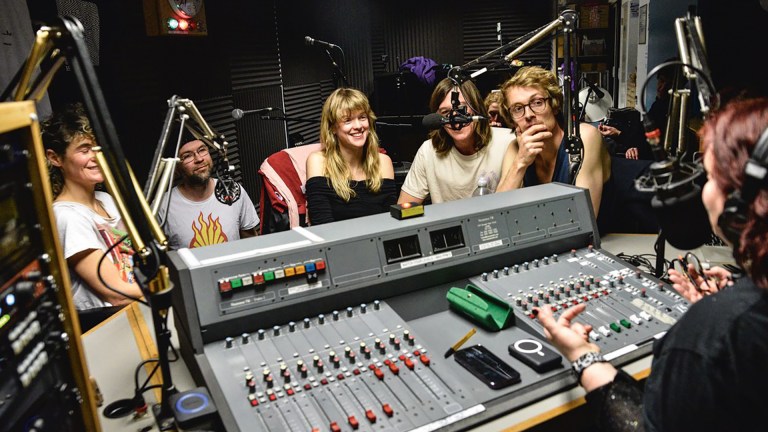Do mental health issues seem more prevalent now or is it because young people feel freer to express their problems rather than keep them festering and hidden?
According to recent research by Dr Praveetha Patalay and Dr Suzi Gage, who is also host of the excellent Say Why To Drugs, depressive symptoms and self-harming behaviours increased in mid-adolescence between 2005 and 2015, as did levels of obesity and reduction in sleep.
BBC Radio 3’s Free Thinkingassembled a panel to discuss anxiety and the teenage brain. One of the problems of being human is working out the right level of anxiety to thrive. Too much and you remain trapped and terrified in the dark, too little and you can find yourself accidentally falling off the end of a pier into the crashing waves below.
As counsellor Caroline Dower said, “The positive side to anxiety, it mobilises us.” Dower works at Durham University which, like most universities, is seeing a rise in mental health problems among students as we also see a lowering in the age groups that are affected by issues such as anxiety. Host Anne McElvoy stated that the charity Childline delivered more than 21,000 counselling sessions to young people trying to cope with feelings of anxiety, almost double the number compared to two years ago. Is anxiety on the increase or is it people’s willingness to admit they have problems with anxiety changing? Is the perpetual attachment to the voices of social media and the pressures and judgements within that creating a greater feeling of the burden of life?
I am sure gruff voices of reason will declare it is the snowflake generation who lack the toughness of those who came before, but it doesn’t take much reading about the make-do-and-mend generations who kept calm and carried on to discover many were unravelling within and often taking it out on those closest to them. Have you ever met anyone who proudly said, “I was beaten as a child and it never did me any harm,” and thought, “There goes a well-balanced man at peace with the world”?
Psychologist Stephen Briers defined when anxiety becomes a clinical problem as when the amplification of normal levels leads to irrationality, physical symptoms and a pattern of avoidance that spirals and heightens the feeling. Until recently, anxiety issues would have been lumped in with depression.









